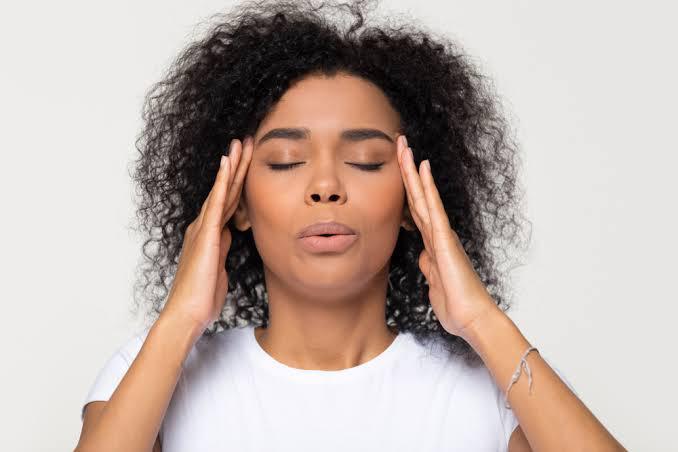
07 Jun Proven Ways To Deal With Anxiety
Almost one-in-five people suffer from social or general anxiety. Science has shown that cognitive-behavioural therapy (CBT) is currently the best treatment for anxiety; better than just taking drugs and better than taking drugs as well as having therapy. There are also scientifically backed ways to deal with anxiety.
Reframe situations
One of the best ways of reducing anxiety is to think about situations differently. Most situations can be re-framed and studies show that people who do this naturally — as opposed to trying to suppress their anxiety — feel less anxious in stressful social situations.
For example:
It is not a scary presentation; it is a little chat with a few colleagues.
It is not a job interview; it is a chance to meet some new people.
Reappraisal can be beneficial when anxiety becomes persistent and gets in the way of everyday life.
Regular exercise
Regular exercise is one of the best ways to reduce anxiety, a review of the research has found.
Exercise can reduce anxiety symptoms by 20 percent compared with those who do not exercise.
As little as 20 minutes can make you feel calmer right now — and it works on just about everybody.
More than around 30 minutes of exercise, though, seems to provide the best dose for anxiety.
Up to 80 percent of people experiencing depression say exercise improves their mood and anxiety most of the time, another study has found.
Safety signals
Using safety signals helps people cope with anxiety. Safety signals can be anything from a picture linked to relaxing thoughts, to a piece of music or a place.
When in a situation that provokes anxiety, thinking about these safety signals can help.
Safety signals access a totally different network in the brain to those usually targeted by therapy or medication.
Therefore, they may help people who do not respond to other methods of treatment.
The smell of lavender
The smell of lavender reduces anxiety. Lavender also has practically no side-effects in comparison to drugs like benzodiazepines and SSRI antidepressants.
Benzodiazepines, in particular, can cause headache, dizziness and an effect like being drunk.
Lavender, meanwhile, has a relatively quick relaxing influence and no other side-effects.
Improve gut bacteria
Improving gut bacteria decreases anxiety.
Both a balanced diet and using probiotics can help improve gut bacteria.
Foods that may help to improve gut bacteria include those high in fibre, such as vegetables, beans and legumes.
A diverse range of foods can also help many different types of ‘good’ bacteria grow in the gut.
It is better to avoid sugar, alcohol and artificial sweeteners as these can be detrimental to gut bacteria.
Prebiotics also improve gut bacteria.
Fruits and vegetables
Eating more fruits and vegetables lowers the risk of anxiety by almost one-quarter. The study also found that anxiety disorders are more common in women, in those with low household income and those with other health problems.
Higher amounts of body fat were also linked to anxiety, Mr Jose Mora-Almanza, study co-author, said:
“This may also partly explain the findings associated with body composition measures.
As levels of total body fat increased beyond 36%, the likelihood of anxiety disorder was increased by more than 70%.”
Personality change
Two different types of psychotherapy for anxiety disorders can change people’s anxious personalities dramatically.
The study included 60 patients with generalised anxiety disorder who received either cognitive-behavioural therapy (CBT) or metacognitive therapy.
Metacognitive therapy involves targeting basic thinking processes, in contrast to CBT which concentrates on the content of thoughts.
A simple example of metacognition is realising one is prone to repetitive thinking of depressive thoughts — what psychologists call rumination.
The results showed that just 12 sessions of psychotherapy was enough for people to make large changes to their personalities.
Deep breathing
Deep breathing helps reduce anxiety.
Diaphragmatic breathing — colloquially known as deep breathing — involves contracting the muscles underneath the lungs.
Sometimes it is called ‘belly breathing’ because it feels like breathing from the belly.
In contrast, ‘chest breathing’ — using the muscles around the upper body — is less efficient.
This sort of shallow breathing is linked to anxiety, fatigue and muscle tension.
Belly breathing is best done by breathing in steadily for four seconds from the diaphragm, then exhaling for six seconds.
Yoga
Yoga is an effective complementary treatment for anxiety.
Yoga and breathing exercises reduce the symptoms of anxiety in both the short and long-term.
In fact, the more yoga practice people in the study did, the more their depression and anxiety improved.
Another study has also shown that practising yoga reduces the symptoms of generalised anxiety disorder.
Matcha tea
A type of green tea called matcha reduces anxiety.
Matcha green tea, which has a long history of medicinal use in Japan, has a calming effect, a mouse study has shown.
The tea has an active ingredient that stimulates both dopamine and serotonin receptors — both of which are linked to anxious behaviour.
Matcha comes in the form of a finely ground powder derived from the same small tree that all teas come from: camellia sinensis. (PsyBlog)


Sorry, the comment form is closed at this time.